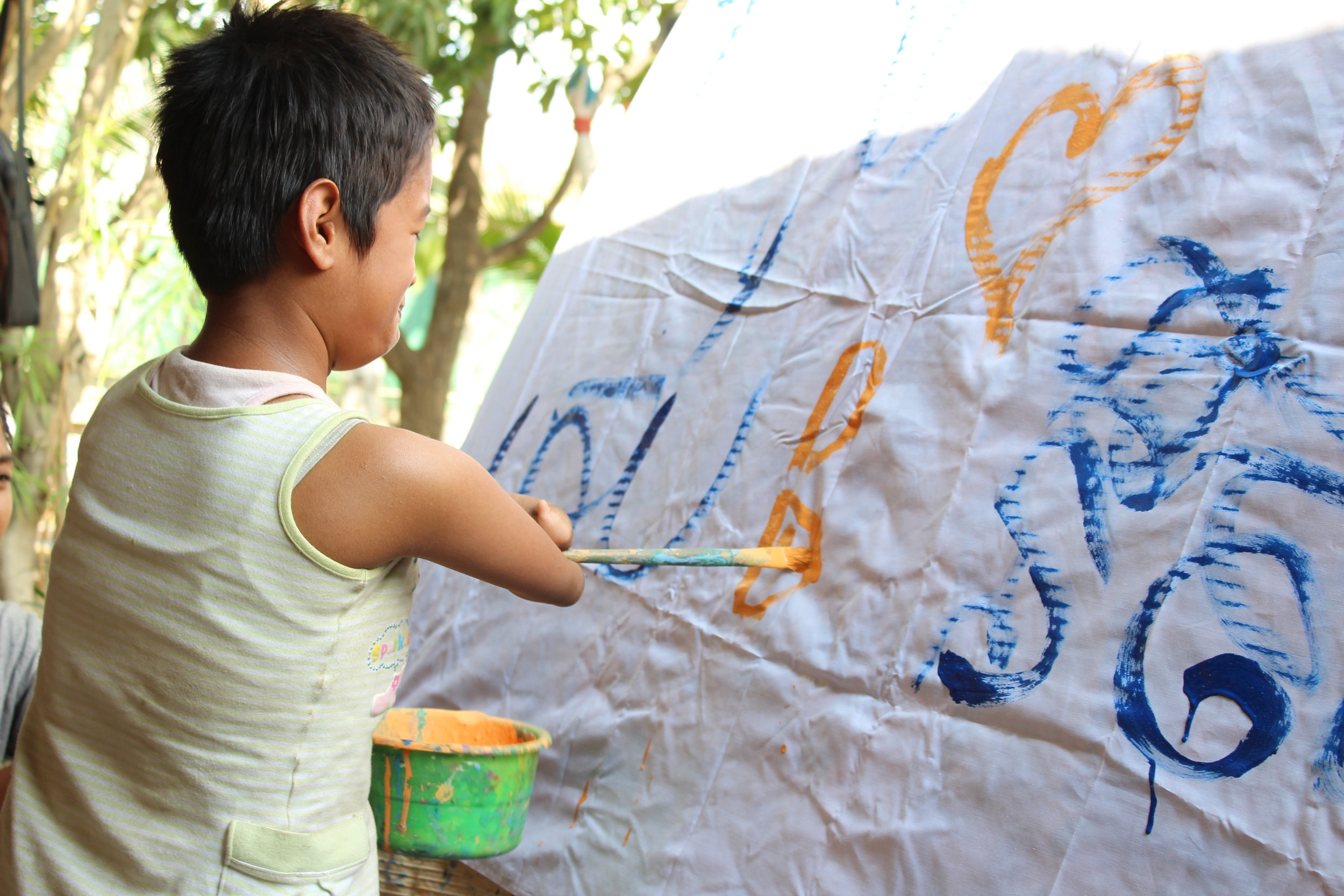DAMNOK TOEK
Damnok Toek is a local Cambodian NGO, founded in 1997. They serve the most marginalized and at-risk children and youth in Cambodia. With centers in Neak Loeung and Kep, they are among a select few organizations in Cambodia that support children and young people with severe mental and physical disability. Damnok Toek also runs multiple projects in targeted border communities in Poipet and Neak Loeung, where they work with street children, orphans, and children who have been victims of trafficking and forced/unsafe migration.
Upon learning the details of this difficult but hugely important work, ECHO decided to support the operations and growth of their center for children with disabilities.
Mission
Damnok Toek's long term vision is of a country where every child can live a safe and fulfilling live in a safe family environment. Since 1997, its mission has been to serve the most marginalized and at-risk children and youth in Cambodia.
In 2003, Damnok Toek launched its center for children with disabilities to address the lack of services for children and youth living with mental and physical disability in Cambodia. The goal of the center is to provide residential and individual assisted-living care, and to help develop children's skills, according to their individual needs. Through the programs at their center, Damnok Toek is improving their children’s quality of life, and allowing them to strive towards a future of independence and self-sufficiency.
Impact
Damnok Toek has been an integral part of the disability advocacy and care network in Cambodia for nearly 15 years. As such, they have developed vital partnerships that ensure continuity and holistic care for children countrywide.
The capacity of the center is 30 children. Currently, 16 children are living at the center. 4 more are coming this year.
150 children have lived at the center, from 2003 till 2018:
40% have been reintegrated back into their families
11% have found jobs, and are now living independently
18% live in Damnok Toek's Independent Living Home or Group Homes
7% live in Damnok Toek's social business farm, in Kep
9% still live at the center
10% have been referrred to partner NGOs
4% have left the programs
Why supporting these children?
Children with disabilities are one of the most marginalized and excluded groups in society. There is a prevalence of children with disability being abandoned by their families and facing daily discrimination even if they are in a home setting. Further, they are often likely to be among the poorest members of the population. They are less likely to attend school or medical services. Their disabilities also place them at a higher risk of neglect and physical abuse, and often exclude them from receiving proper support.
Children with disabilities face a challenging life. Damnok Toek’s metrics show that 90% of the children who have been welcomed to their center since 2003 have been abandoned by their parents. It is, therefore, a singular challenge to reintegrate them back into society. But these challenges do not end with childhood. Once adulthood is reached, there is no appropriate structure, little to no social support, nor alternative care services, that can provide adults with disability a life of dignity and purpose. Health service staff, caregivers of children with disabilities, and educators do not receive adequate training regarding disability, and therefore there is a constant lack of practical knowledge on how to care for children with disabilities.
What do they do for the children?
All the children living in the center receive:
Medical care. All children have access to adapted mental and general health care, all according to their individual needs. They get physical therapy and specialized equipment. For example, wheelchairs or appropriate prosthesis are provided for physically disabled children.
3 nutritious meals per day, following a menu especially created for their needs.
Regular psychosocial counselling and individualised care. Each child has a member of staff responsible for them. Further, they can raise any concerns and/or requests completely anonymously.
Education, in sensitive to their needs and capacities. Orientation is decided on a case-by-case basis. Whenever possible, children attend public schools or specialized schools for children with disability.
Occupational therapy and leisure activities, such as games, art classes, swimming activities, annual retreats, and much more.
Whenever possible the children are reintegrated in their families.
A life in a peaceful and clean environment. In 2018, the center moves from Phnom Penh to Neak Loeung, moving the children from the quickly expanding and dirty capital to a more nurturing environment, closer to nature.
What do they do once they enter adulthood?
The center has been taking care of children since 2003, resulting in more and more children reaching adulthood while not being capable to support themselves in life. To address this new challenge, Damnok Toek opened a social farm business in Kep, near the Cambodian coast.
When the children reach adulthood, Damnok Toek's main priority is to help them reintegrate into society and their families.
For those young adults whose disabilities are too severe, mostly because of mental disabilities, Damnok Toek can now provide a supportive and safe environment where they can live and work together.
Every individual contributes to the farm to their own capacity, creating a sense of purpose and boosting self-confidence.
Financial approach
Damnok Toek actual spent budget allocation in 2017
In 2017, Damnok Toek was able to provide its programs and services on a total budget of $ 44.230, while caring for 16 children in total.
More information? Visit www.damnoktoek.org or read our DT updates here.






